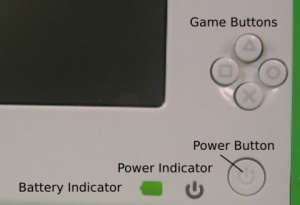Clean-install procedure for 8.2: Difference between revisions
Jump to navigation
Jump to search
| Line 19: | Line 19: | ||
# Get a [[Developer key#Getting a Developer Key for your Running XO Laptop|developer key]] for your XO laptop. |
# Get a [[Developer key#Getting a Developer Key for your Running XO Laptop|developer key]] for your XO laptop. |
||
# Download the OS image and its CRC file to your local computer. DO NOT open them. P.S. If your computer runs on MS Windows, point your cursor on the link, click the right mouse button and choose "Save Link Target As". |
# Download the OS image (e.g. [http://xs-dev.laptop.org/~cscott/xo-1/streams/joyride/build2230/devel_jffs2/os2230.img os2230.img]) and its CRC file (e.g. [http://xs-dev.laptop.org/~cscott/xo-1/streams/joyride/build2230/devel_jffs2/os2230.crc os2230.crc]) to your local computer. DO NOT open them. P.S. If your computer runs on MS Windows, point your cursor on the link, click the right mouse button and choose "Save Link Target As". |
||
#* ''Development images can be found at places like the [http://xs-dev.laptop.org/~cscott/xo-1/streams/joyride/ joyride build stream] (e.g. [http://xs-dev.laptop.org/~cscott/xo-1/streams/joyride/build2230/devel_jffs2/ joyride-2230]) and from many other sources.'' |
#* ''Development images can be found at places like the [http://xs-dev.laptop.org/~cscott/xo-1/streams/joyride/ joyride build stream] (e.g. [http://xs-dev.laptop.org/~cscott/xo-1/streams/joyride/build2230/devel_jffs2/ joyride-2230]) and from many other sources.'' |
||
# Copy these files onto of a clean (Full (not Quick!) formatted) USB memory stick. Your USB memory stick should now contain two files named: for example, os708.img and os708.crc. |
# Copy these files onto of a clean (Full (not Quick!) formatted) USB memory stick. Your USB memory stick should now contain two files named: for example, os708.img and os708.crc. |
||
Revision as of 21:46, 31 July 2008
Official and Candidate Builds
For the general public
- Download the OS image and its signatures file to your local computer. DO NOT open them. P.S. If your computer runs on MS Windows, point your cursor on the link, click the right mouse button and choose "Save Link Target As".
- Official OS images can be downloaded from http://download.laptop.org/xo-1/os/official/, http://download.laptop.org/xo-1/os/candidate/, and sometimes from http://download.laptop.org/xo-1/os/custom/.
- Copy these files onto of a clean (Full (not Quick!) formatted) USB memory stick. Your USB memory stick should now contain two files named something like: en708-1.img and fs.zip.
- Unmount the USB memory stick and disconnect it from your computer when it is safe to do so.
- Shut down your XO laptop. Insert the USB stick into the XO Laptop and power up while holding the four game keys. (this is VERY important!)
- Release game keys when it asks you to. It will take a few minutes to rewrite the memory.
- Reboot.
- Check that you have the correct build:
- Hover over the XO in the Home screen and click on 'About my XO'
- Check that the build number matches build number of the image file you downloaded, e.g. 'Update.1 708, firmware Q2D16' for en708-1.
Development Builds
For Developers
- Get a developer key for your XO laptop.
- Download the OS image (e.g. os2230.img) and its CRC file (e.g. os2230.crc) to your local computer. DO NOT open them. P.S. If your computer runs on MS Windows, point your cursor on the link, click the right mouse button and choose "Save Link Target As".
- Development images can be found at places like the joyride build stream (e.g. joyride-2230) and from many other sources.
- Copy these files onto of a clean (Full (not Quick!) formatted) USB memory stick. Your USB memory stick should now contain two files named: for example, os708.img and os708.crc.
- Unmount the USB memory stick and disconnect it from your computer when it is safe to do so.
- Shut down your XO laptop. Insert the USB stick into the XO Laptop and power up while holding the escape key (the circled "x" in the upper left corner of the keyboard).
- Release the 'x' key when it asks you to. You should be at the OpenFirmware "ok" prompt.
- Assuming that your disk image is named _____.img, type
copy-nand u:\____.img
- (e.g. os708.img, os2230.img, en708-1.img, ...)
- 8. Press Enter, then wait while your machine reflashes.
- 9. When the "ok" prompt returns, reboot the machine.
